Kennel Nose Uncovered: Real-Life Solutions from Dog Owners
Understanding Kennel Nose in Dogs: Causes, Symptoms, and Treatments
Kennel nose is a common issue faced by many dog owners, especially those who frequently use boarding facilities for their pets. This condition, while not life-threatening, can cause discomfort and stress in dogs. In this article, we’ll explore what kennel nose is, its symptoms, and effective treatments, including how to treat dog kennel nose at home.
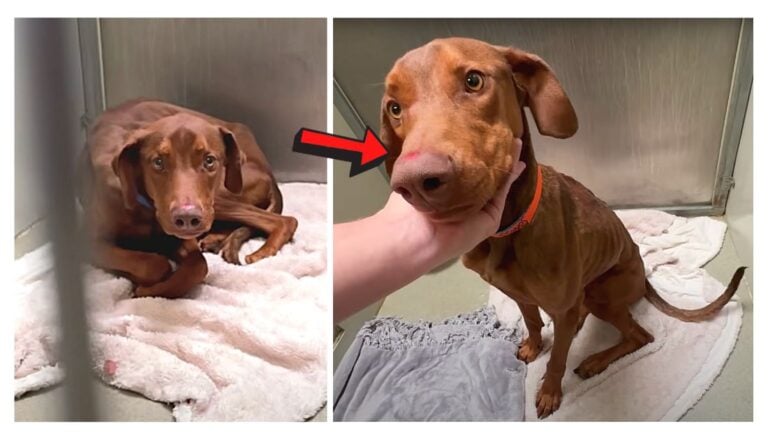
What is Kennel Nose In Dogs?
Kennel nose in dogs refers to a condition where a dog’s nose becomes raw, sore, or chapped due to prolonged contact with hard surfaces, typically seen in dogs that spend a lot of time in kennels or crates. It’s important to distinguish kennel nose from other nasal conditions in dogs, such as those caused by Bordetella bronchiseptica (a bacterium associated with kennel cough), canine distemper virus, or parainfluenza virus canine.
Symptoms of Kennel Nose
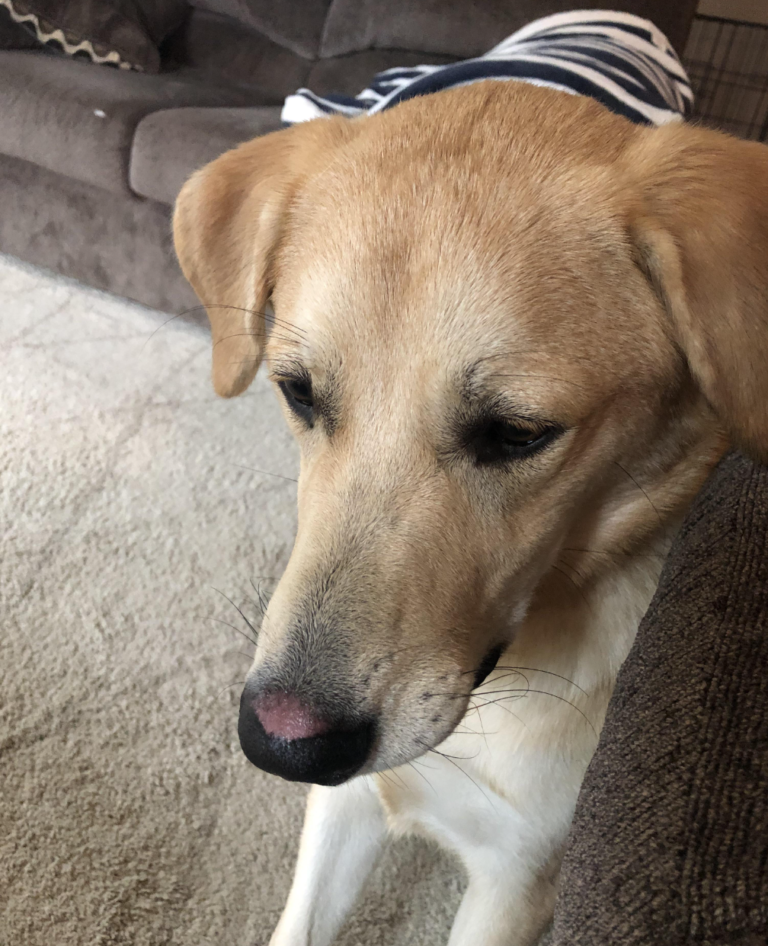
The primary kennel nose symptoms include a visibly sore, raw, or chapped nose. Kennel nose pictures or kennel nose images can help in identifying this condition, showing the distinct appearance of the affected area. In some cases, the dog’s nose may appear scraped or scabbed.
Causes of Kennel Nose
Kennel nose often occurs when dogs are in a boarding facility or their own kennel, especially if they experience separation anxiety. Dogs with separation anxiety may rub their nose against the kennel door or walls, leading to the condition. Additionally, spending time in a confined space with limited soft bedding can contribute to the development of kennel nose.
Bear The Emaciated Dobie Had Kennel Nose
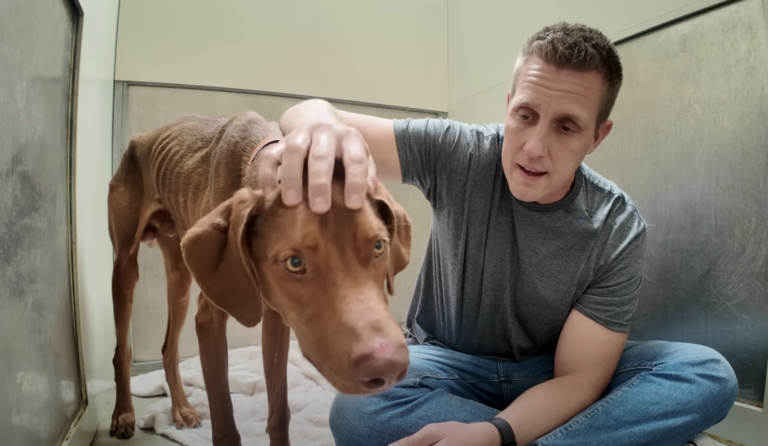
Rocky recently sat with a dog named Bear in the shelter. A particularly poignant aspect of Bear’s story was his “kennel nose.” This ailment is characterized by abrasions and rawness on the nose, caused by the dog’s prolonged rubbing against the bars or walls of a kennel. In Bear’s case, his kennel nose was a silent testament to the long periods he spent in confined shelter spaces, reflecting the stress and discomfort he experienced. Despite this, Bear’s gentle demeanor and resilience shone through, making his recovery and eventual adoption even more heartwarming. His kennel nose, while a mark of his past hardships, became a symbol of his journey towards a happier, healthier life. (Watch Bear’s full video above)
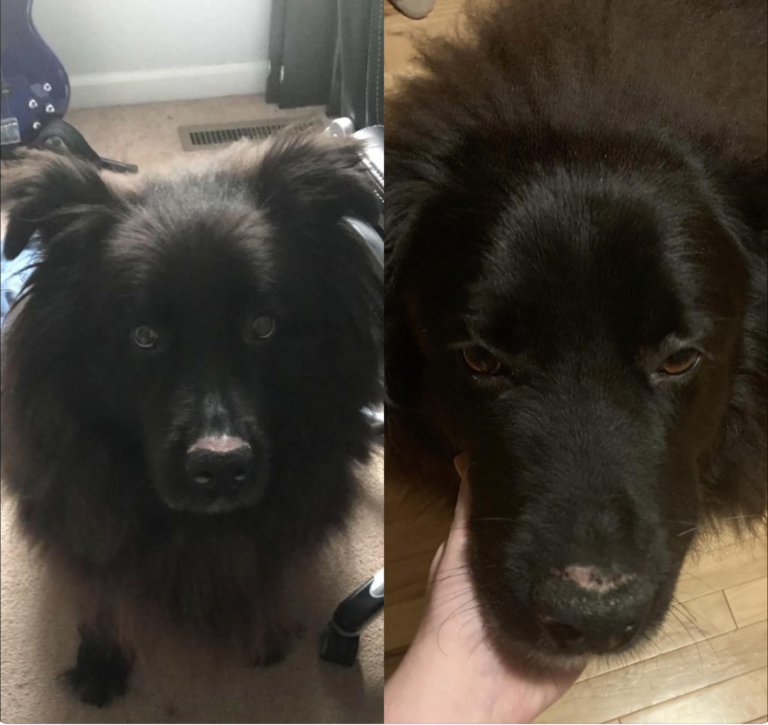
Kennel Nose Treatment
“Whenever I leave her in a crate, she ends up scraping her nose raw and bleeding,” shared Sarah, a concerned dog owner on Dog Forum, discussing her Aussie, Molly’s, struggle with separation anxiety. This common issue among dogs often results in ‘kennel nose,’ a condition marked by injuries from stress-related behaviors.
Sarah tried anxiety medications and supplements like melatonin, theanine, and tryptophan, all vet-approved. Another solution is gradual training to help Molly understand that Sarah would always return. This method involves leaving the dog for short periods and slowly increasing the duration, ensuring the dog feels safe and secure.
Another solution dog owners have success with is a Thundershirts, an anxiety-reducing garment for dogs. This non-invasive approach helped a lab mix transition from destructive behavior to a calmer state when left alone. These shared experiences and tips provide valuable insights for dog owners facing the challenge of separation anxiety and its physical manifestation, kennel nose.
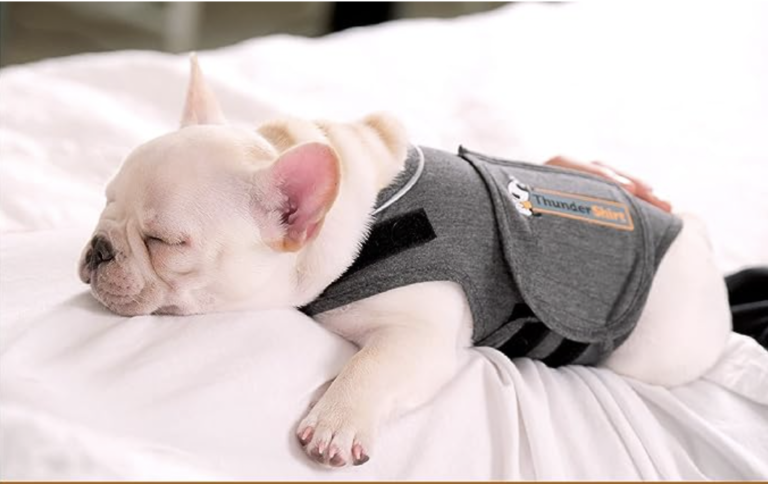
Treating kennel nose involves both medical intervention and changes in the dog’s environment.
How to Treat Kennel Nose at Home
- Soft Bedding: Ensure your dog has soft bedding in their kennel to reduce the likelihood of them rubbing their nose against hard surfaces.
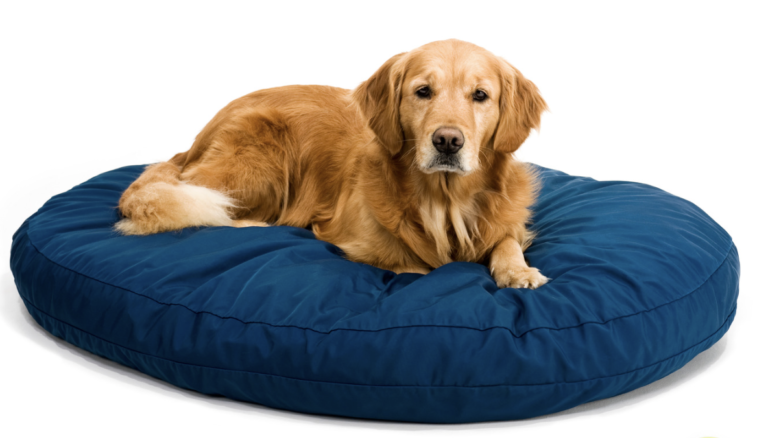
- Reduce Anxiety: Address any underlying separation anxiety issues. This may involve behavioral training or consulting a pet behaviorist.
- Applying a pet-safe balm to the nose.
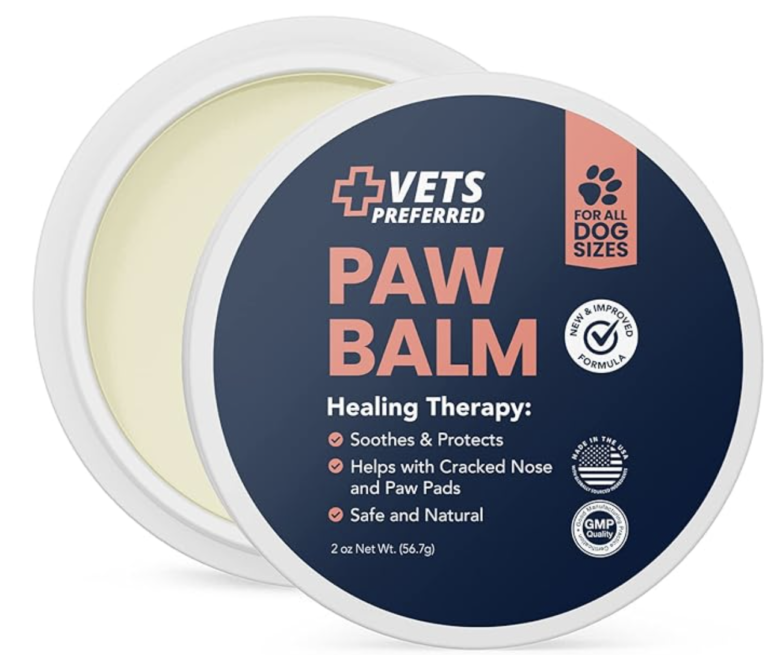
- Supplements to help minimize anxiety, like calming chews and CBD
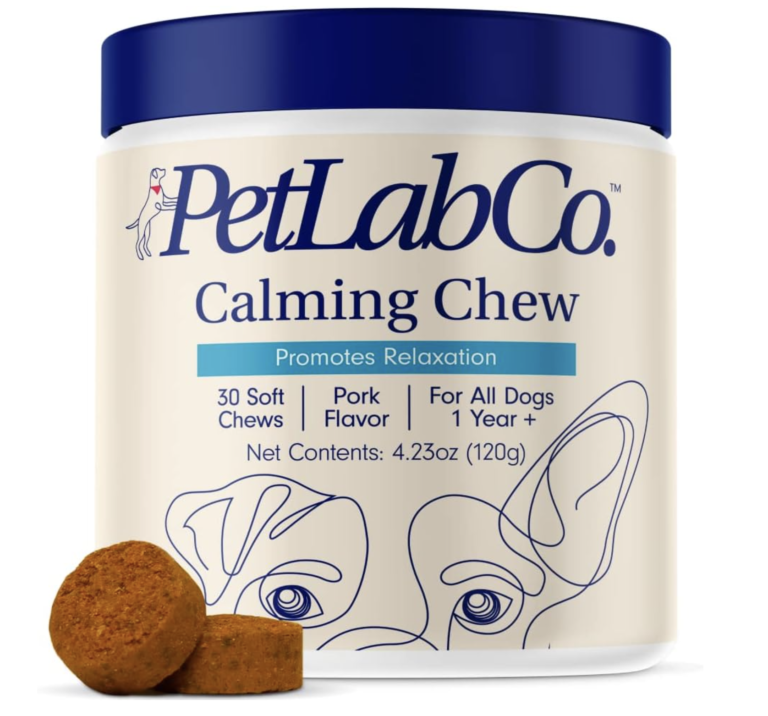
- Prevention: Prevent kennel nose by providing a comfortable kennel environment and addressing any behavioral issues like separation anxiety.
- Thundershirts anxiety-reducing garment for dogs
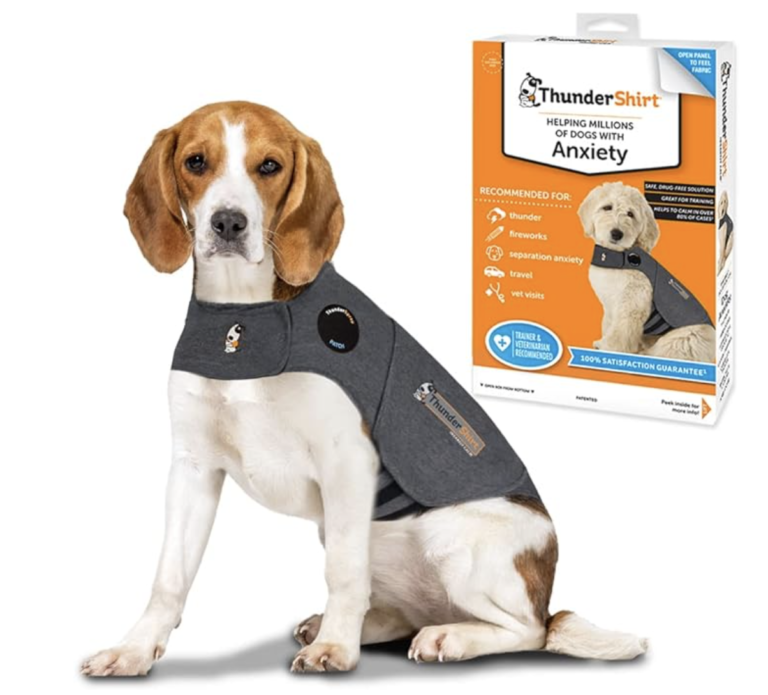
When To Consult A Vet
If the nose is severely damaged, consult a veterinarian. They may prescribe cough suppressants, anti-inflammatories, or other medications.
Preventing Kennel Nose
To prevent your dog from developing kennel nose, consider the following:
- Provide a comfortable kennel with soft bedding.
- Address separation anxiety and other behavioral issues.
- Regularly clean and disinfect the kennel to prevent infections.
Kennel nose in dogs is a preventable condition that can be effectively managed with proper care and attention. By understanding the causes and implementing the right treatments and preventive measures, you can ensure your dog remains comfortable and healthy, even when spending time in their kennel. Remember, if you’re unsure about your dog’s condition or if the symptoms persist, it’s always best to consult a veterinarian for professional advice.
Frequently Asked Questions About Kennel Nose in Dogs
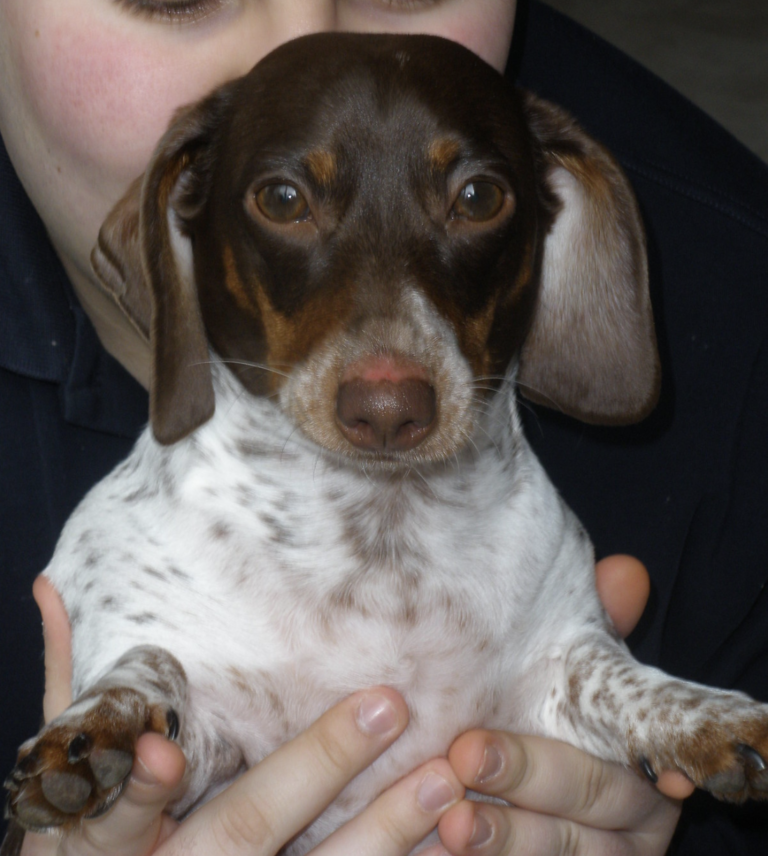
1. Can dogs get kennel nose from a dog’s kennel that isn’t well-maintained?
Yes, dogs can develop kennel nose if they spend time in a kennel that isn’t well-maintained. A dog’s kennel should be clean, comfortable, and have soft bedding to prevent their nose from rubbing against hard surfaces.
2. Is kennel nose a symptom of kennel cough?
No, kennel nose is not a symptom of kennel cough. While both can occur in kennel environments, kennel nose is caused by physical abrasion, whereas kennel cough is a respiratory infection. Symptoms of kennel cough include a persistent cough, runny nose, and lethargy.
3. Should I vaccinate my dog against kennel cough to prevent kennel nose?
Vaccinating your dog against kennel cough is a good practice, especially if they frequently visit boarding facilities or socialize with other dogs. However, the kennel cough vaccine specifically prevents Bordetella bronchiseptica and related respiratory infections, not kennel nose.
4. What should I do if my dog rubbed their nose raw in their kennel?
If your dog has rubbed their nose raw, it’s important to treat the area gently. Clean the nose with a soft, damp cloth and apply a pet-safe balm. If the condition seems severe or doesn’t improve, consult your veterinarian.
5. Can a runny nose in dogs be related to kennel nose?
A runny nose in dogs is typically not related to kennel nose. Kennel nose is due to physical abrasion, while a runny nose can be a sign of respiratory infections, allergies, or other health issues. If your dog has a runny nose, it’s best to consult a veterinarian for a proper diagnosis.
6. How can I prevent my dog from getting kennel nose if they have to stay in a dog’s kennel?
To prevent kennel nose, ensure the kennel has soft bedding and is spacious enough for your dog to move comfortably. Address any signs of anxiety or stress in your dog, as these can lead to behaviors that cause kennel nose.
7. Is kennel nose a sign that my dog might get kennel cough?
Kennel nose itself is not an indicator that your dog will get kennel cough. However, both conditions can occur in kennel environments, so it’s important to maintain good hygiene and preventive care, including vaccinations, when using such facilities.
Related Articles:
- Have You Ever Looked Into A Dog’s Eyes & Felt They Were Speaking To You? Understanding Body Language.
- 10 Potential Advantages of CBD for Dogs
- Why Is My Dog’s Nose Runny? Learn 7 Reasons
- 7 Serious Causes of Cloudy Eyes in Dogs



